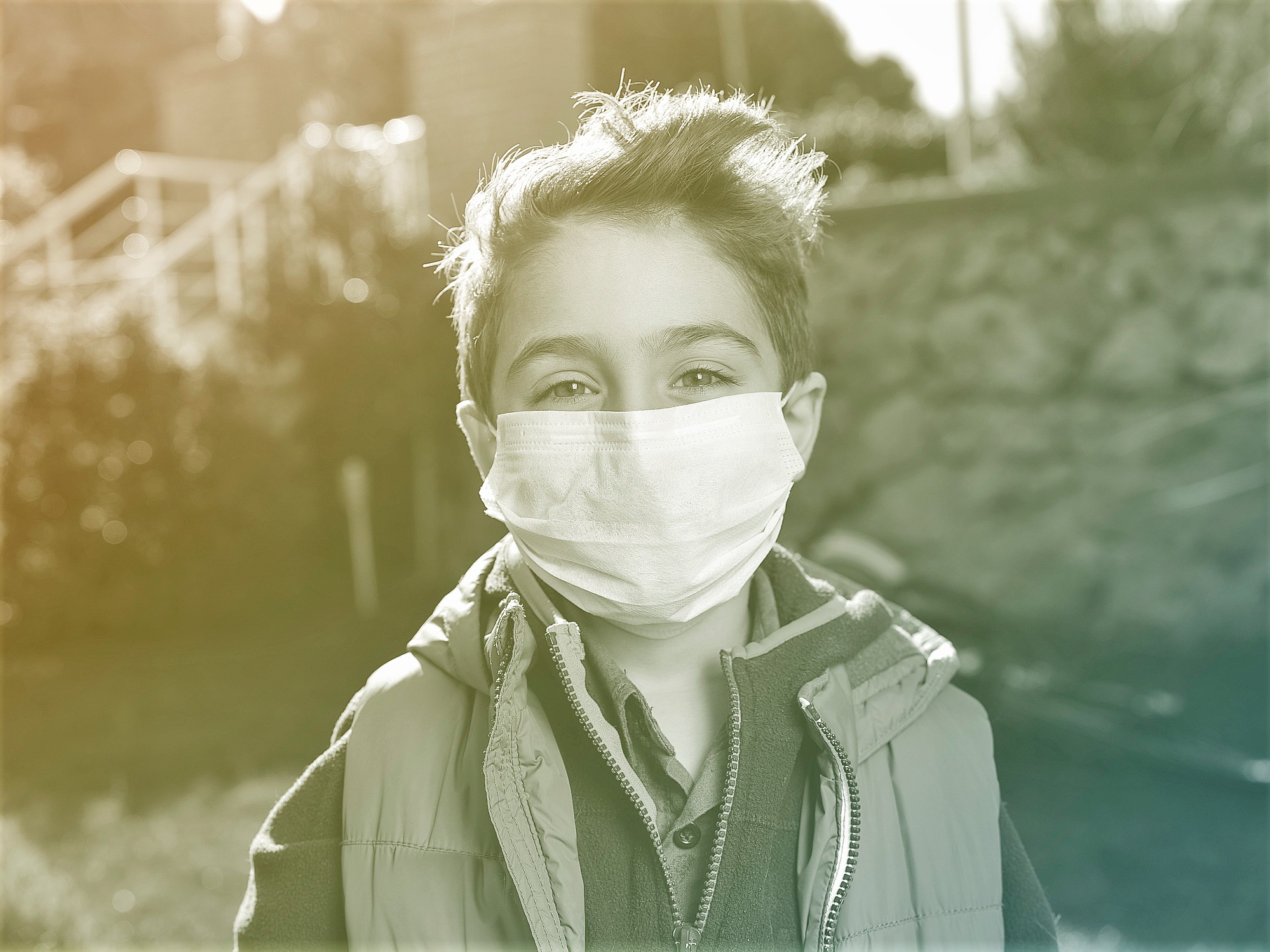Fewer kids than adults are contracting COVID-19 and those that do often have less severe infection—a big relief for parents. Experts have been examining the reason for this since the pandemic hit, and new research is offering more insight.
In a study published in Science in November, researchers at the Francis Crick Institute in London found that more kids than adults have antibodies from other coronaviruses—aka the family of viruses that cause things like the common colds—that may offer protection against SARS-CoV-2, the virus that causes COVID-19. The specific antibodies they looked at "peaked at 62 percent between 6 and 16 years of age," the study authors wrote.

What that means exactly? The Centers for Disease Control and Prevention (CDC) describes antibodies as “proteins that help fight off infections and can provide protection against getting that disease again.” This study shows people had antibodies in their blood from past illnesses that were able to attach to a spike structure unique to coronaviruses.
“There are several studies that have tried to understand why some people, particularly children, do well and recover with few or no symptoms when infected with SARS-CoV-2,” says Betsy Herold, M.D., chief of the division of pediatric infectious diseases and vice chair for research at Children’s Hospital at Montefiore. “One possibility, as noted by this study, is that preexisting immunity to other coronaviruses, which share some homology [similarities] with SARS-CoV-2, might provide some protection.”
Other research published in Science in September found similar results. It showed people had antibodies that could work against the new coronavirus and pointed to past cold infections as a reason. And, as Stephen J. Elledge, Ph.D., a genetics professor at Harvard Medical School and Brigham and Women’s Hospital who was part of this study, told the New York Times, adults may get a cold or two annually while kids can get up to a dozen, exposing them to more coronavirus antibodies and for longer periods of time.
While the newest study suggests there is a potential protective role with these antibodies, more research needs to be conducted to say for certain. “More studies are clearly needed to determine if memory immune responses to other coronaviruses provide some level of protection and to explore other reasons, such as differences in the immune response to the virus, which may explain why some people, especially children, are relatively asymptomatic and recover without any sequelae,” points out Dr. Herold.
Scientists have been looking at other reasons why kids typically have better outcomes with COVID-19 than adults. Another study conducted by scientists at Albert Einstein College of Medicine, Children’s Hospital at Montefiore, and Yale University, which Dr. Herold was part of, didn't find differences between adults and children and their levels of antibodies to common cold coronaviruses.
"Rather, we found that children, who in general recovered rapidly from infection and were discharged home from the hospital within four days on average, mounted a different type of immune response to the virus compared to the adults," says Dr. Herold. "Our findings suggest that children may mount a more effective innate immune response, which could protect them from severe pulmonary disease associated with COVID-19 in adults." Innate immunity, the study explains, is when "immune cells respond rapidly to invading pathogens of all kinds" and is stronger during childhood.
Regardless, as COVID-19 cases continue to spike in the United States, parents should continue to take safety precautions. Check out Parents.com's guide for decreasing your family's chance of getting the coronavirus.
Anna Halkidis is the features editor at Parents.com. Keep up with her on Twitter and Instagram.





